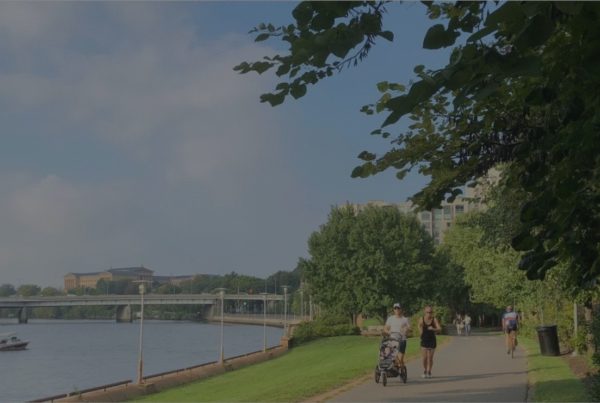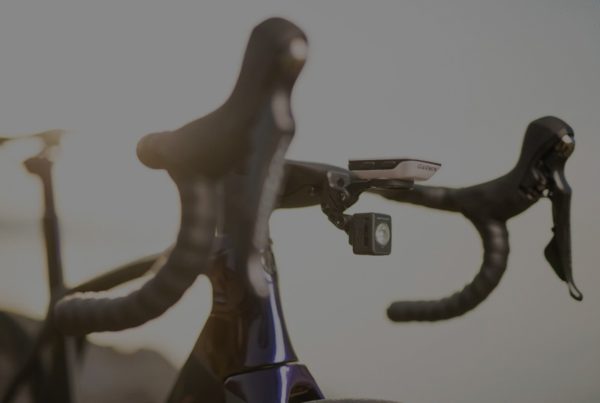Benjamin Franklin once observed that there is nothing certain in this world but death and taxes. In our own time, we’ve observed that when it comes to the subject of cyclists, it’s all but certain that non-cyclists will bring up scofflaws and taxes.
In the past few weeks, the subject of taxes — specifically, taxes on bicycles — has come up once again. On November 12, Bikeportland reported that the Bicycle Transportation Alliance (a bicycle advocacy organization based in Portland, Oregon) and Metro (the regional government for the Portland metropolitan area) both support a recommendation by Oregon Governor Ted Kulongoski’sTransportation Vision Committee to create a “point-of-sale excise tax on the purchase of adult bicycles.” The proposed excise tax — a fee in the range of $5-$20 per bike — “should be used to enhance bicycle transportation, including Safe Routes to Schools.”
A few weeks later, on December 7, the Seattle Times published an opinion piece by James Vesely titled “Impose license fee on King County cyclists,” in which he argued that “a $25 annual fee for owning a bike” would “make cyclists true members of the world of transportation, rather than free riders on the tax rolls,” because revenues raised from the proposed fee would be used to offset the costs of cycling infrastructure.
Vesely continued with this theme in his column the following week, titled “Tales of two cycling cities: Chicago has no license fee, Honolulu does.”. Arguing that his proposal “is not about emotion, but about public policy,” Vesely asked
”How does a city and a region maintain its quality of life in harsh economic times? Normally, through a fee-based structure that asks for special use permits. Why should we exempt the politically powerful, such as cyclists’ organizations?”
In support of this argument, Vesely compared bicycle legislation in Chicago and Honolulu. Chicago’s “new bicycle ordinance is one of the most progressive in the country,” Vesely noted, with “heavy fines on motorists who interfere with cyclists.”
This is interesting rhetoric, in light of Vesely’s claim that his proposal is “not about emotion.” Think about it for a minute. Chicago places “heavy fines on motorists who interfere with cyclists.” What does that mean? To the non-cycling public, whom Vesely is addressing, it may conjure up frightening images of scofflaw cyclists run amok, with motorists who get in the way of these lawless, politically powerful untouchables subject to “heavy fines.” Hammering home his rhetoric, Vesely notes that Chicago cyclists are scofflaws who don’t stop at stop signs. The reality? The Chicago ordinance imposes fines on motorists who door a cyclist, or who pass a cyclist with less than three feet of clearance or who right-hook a cyclist.
Apparently finding Chicago’s bicycle legislation objectionable, Vesely offers Honolulu’s legislation as a better model for Seattle. The difference? According to Vesely, while Chicago places heavy fines on motorists, Honolulu collects a $15 fee on new adult bicycle sales, and a $5 fee when bicycle ownership changes. These fees are deposited in a special bikeway fund, and can only be used for cycling projects and programs.
What’s going on here? What does an ordinance that imposes fines on negligent motorists who injure or kill cyclists have to do with a proposed ordinance for a bicycle license fee? Nothing. Nothing at all.
Vesely claims that his proposal is “not about emotion”…and yet, in support of his proposal, dredges up every negative emotion he can about cyclists, including that ne plus ultra bogeyman, Critical Mass. If it wasn’t about emotion, Vesely would have talked up the benefits of Honolulu’s legislation. Instead, he brought up free riders on the tax rolls, scofflaws, Critical Mass, and fines for motorists. Of course it’s about emotion.
Even in Oregon, cycling advocates are bending to the political might of the trucking and highway lobbies, the forces behind the bicycle tax idea, despite the fact that everybody involved knows that the “cyclists don’t pay their way” argument is false. If it isn’t about emotion, why make the false, but emotionally appealing argument that cyclists don’t pay their way? Of course it’s about emotion. So what’s going on? Is the bicycle tax a way for those who resent cyclists to stick it to them, or does it provide real benefits to cyclists?
In Honolulu, the registration fees collected from cyclists are deposited in the bikeway fund. Although Vesely argues that those funds can only be used for cycling projects and programs, Honolulu has in fact transferred funds from the bikeway fund to the general fund. Nevertheless, the bikeway funds have generally been used to paint bike lanes, construct bike paths, and to fund BikeEd Hawaii, a bicycle safety program jointly sponsored by the City and County of Honolulu and the Hawaii Bicycling League. The most recent figures from BikeEd indicate that approximately 5,800 children were taught bicycle safety in the 2006-2007 school year.
Compare this number with the 5000 children taught bike safety each year in Oregon, and the additional 50,000 children the BTA claims the Safe Routes to Schools program will be able to reach with a bicycle tax in effect.
Or take a look at Colorado Springs, which has raised $2 million in revenue since its $4 fee was instituted 20 years ago (see “20 years later, city’s tax keeps on giving”). According to Colorado Springs city planner Craig Blewitt, “There’s no way we could have put in the facilities we’ve put in (over) the last 20 years without the bike tax.” Of course, there’s a reason for that — as the article notes, the bicycle excise tax was the last Colorado Springs tax enacted before the Colorado Taxpayers Bill of Rights went into effect. Since then, any new taxes must be approved by the voters. Without the excise tax, Colorado Springs could still have built bicycle infrastructure, but would have had to allocate funds from the general fund — something that might raise protests that cyclists “don’t pay their way.”
And that’s how they do it in King County — they build bicycle infrastructure without an excise tax, something that caused James Vesely to protest that cyclists don’t pay their way. That’s how they do it in Oregon, something that caused the trucking and highway lobbies to protest that cyclists don’t pay their way.
The thing is, we do pay our way. Will paying an additional fee be seen as a tacit acknowledgement that we haven’t been paying our way? Or is it an acknowledgment of political reality, with the benefits outweighing the trade-off?
____
As I noted last week, I’ve been working on updating my website lately, and it’s finally online, with an all-new look, and all-new content. You can check out the changes to my website atbicyclelaw.com, including a new blog which will be updated with new content regularly; today, my blog features a longer version of this week’s column. There will be other exciting changes to the site in the weeks to come, so I hope you’ll make it part of your daily routine.
Bob
Dec. 19, 2008
(Research and drafting provided by Rick Bernardi, J.D.) ((((


